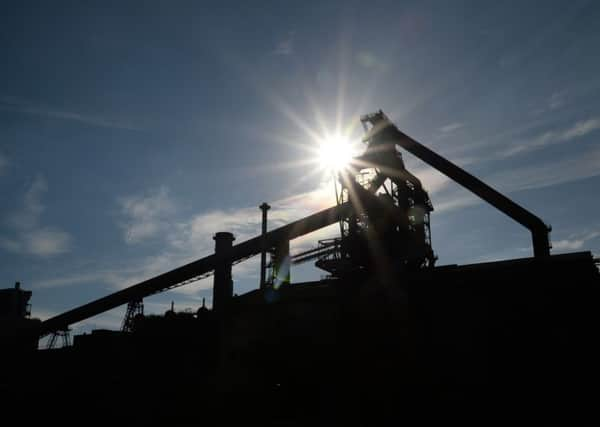Angela Smith: Why fracking could be saviour of steel in the UK


That pragmatic point is what is important to people up and down the country who have traditionally depended on manufacturing jobs to maintain their prosperity, living standards and family life. At its heart, this is about a debate that understands the importance of manufacturing to the UK economy.
In the US, which has had a shale gas industry for some time, one of the biggest winners has been the chemicals industry. Shale gas production in the US has seen feedstock costs reduce significantly, giving the chemicals sector a major competitive advantage over manufacturers in the EU and Asia. Shale gas ethane from the US is much cheaper than that from the EU, which is produced from naphtha, a refined form of crude oil. Cheaper energy, combined with cheaper feedstock, has kick-started investment in the US chemicals industry, attracting $138bn of investment so far and funding 225 new projects.
Advertisement
Hide AdAdvertisement
Hide AdIn the UK, the chemicals industry is already a major exporter, with about £25bn of exports. Yearly, it adds almost £9bn to the UK’s GDP, as well as underpinning much of the manufacturing sector, including steel. In terms of competition, the chemicals sector could benefit greatly from a new source of domestic feedstock. It would benefit from lower costs and, importantly, from shorter, more secure supply lines.
There should also be opportunities for many UK-based manufacturers in other sectors to supply an emerging shale gas industry. A report by Ernst & Young estimates that more than 39,000 indirect jobs could be created.
It also suggests that the total spend involved in bringing UK shale wells into production would be £33bn by 2032, which would include £17bn on specialised equipment, such as high-pressure pumps and mixers. Although the majority of pumps are currently manufactured outside the UK, there is significant potential to increase UK production. However, if UK manufacturing is to benefit, it will be necessary to build the case for investment.
This is, however, not just about pumps; it is also about the sand that will be required for the fracking process. That will come from existing quarries and could generate a £2bn spend in the UK from 2016 to 2032. This is also about the cement, for which there could be a nearly £1bn market, and that cement could come from the UK’s four cement manufacturers. We cannot afford to dismiss that potential.
Advertisement
Hide AdAdvertisement
Hide AdFor me, as a South Yorkshire MP, however, the most exciting prospect lies in the opportunities the shale gas industry could create for steel manufacturing. Steel is in crisis. A global slump in demand, contractions in the oil and gas industry and the dumping of cheap, subsidised steel on global markets by the Chinese have combined with high energy costs and unsustainable business rates to create a debilitating sense of volatility in the industry. I acknowledge entirely that the industry must respond positively to the challenges it faces, but if UK steel is to develop a positive way out of its difficulties, it needs Government support.
We need to understand that the nascent shale gas industry offers one of those rare opportunities to create new demand for steel – and a new sense of hope that there is a positive future for one of our foundation industries.
As United Kingdom Onshore Oil and Gas points out, the crisis will not be solved just by dealing with issues relating to energy and business rates, important though those issues are. It needs to be addressed by supporting UK steel to play a bigger role in manufacturing supply chains domestically and globally. This is about the Government supporting the development of a wider range of steel capabilities, by building the business case for the development of a UK shale gas supply chain.
What we do not need is a repeat of what has happened with the UK’s offshore wind industry, where we have missed opportunities to build a robust supply chain. This time, the Government can get things right by supporting the building of a business case for shale gas. They can encourage confidence among investors and supply-chain companies and prevent the industry meeting the fate that has befallen the green energy sector.
Advertisement
Hide AdAdvertisement
Hide AdThe shale gas industry could need more than 12,000 km of high-quality steel casing, costing £2.3bn. It could also need 50 drilling rigs, which would cost £1.6bn to manufacture. So how do we make sure that we make the best of British, in meeting that potential demand?
Angela Smith is the Labour MP for Penistone and Stocksbridge who spoke in a Parliamentary debate about onshore oil and gas. This is an edited version.